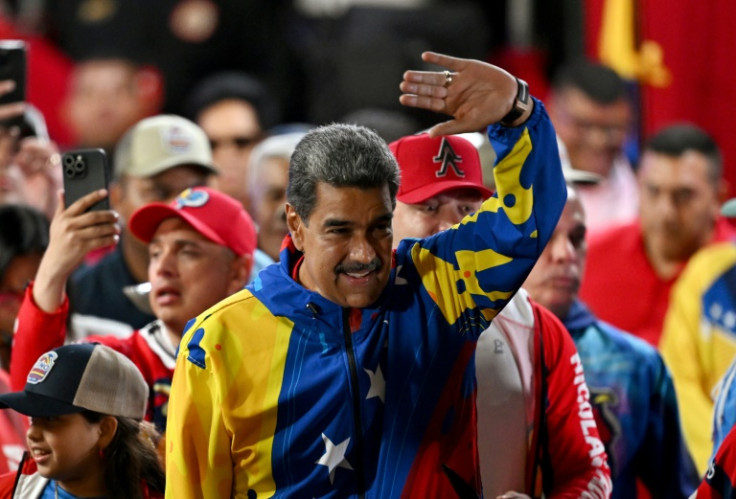
Monday was a busy day in Venezuela, even for the country's frantic standards as it continues to be engulfed in a grave crisis. First off, the United States seized an aircraft used by Nicolás Maduro in Dominican Republic, citing violations of U.S. sanctions and other criminal activities. Later on in the day, a government-friendly court granted an arrest warrant on opposition leader Edmundo González Urrutia, who's considered by many in the international community as the outright winner of the July 28 presidential elections.
Then, during a televised address, Maduro announced an early start to the Christmas season, saying he was moving the festivities up to October 1st, a move that is seen by many as one seeking to ease tensions in the country after a massive national blackout on Friday and recent polls suggesting tens of thousands of additional Venezuelans are currently considering fleeing the country amid the electoral fallout and ensuing government repression.
The announcement also sparked concern over its timing, as the new president is scheduled to take office on January 10th, after the holiday season and some fear that the move might be another attempt by Maduro to consolidate power, especially given the ongoing dispute over the election results.
Maduro suggested that the early celebration was a gesture of gratitude to the people of Venezuela:
"It is September and it already smells like Christmas. And that is why this year, in homage to you, in gratitude to you, I am going to decree the advancement of Christmas to October 1."
#ÚltimaHora | Presidente Nicolás Maduro decretó el adelanto de la navidad, a partir del 1º de octubre
— Globovisión (@globovision) September 2, 2024
🗣️''Ya huele a navidad y por eso este año en homenaje al pueblo combativo, voy a decretar la navidad para el 1 d octubre, llegó la navidad con paz, felicidad y seguridad''.... pic.twitter.com/Z7JvC1ZvUr
"Christmas has arrived for everyone, with peace, happiness and security," Maduro said. During the weeks leading up to the December holidays, the Chavista regime has historically increased the distribution of aid and food packages in the most impoverished neighborhoods, including hams that during the worst years of the economic crisis became the most anticipated product in the boxes handed out by the so-called Local Committees for Supply and Production (CLAP), El País reported.
The announcement coincides with intensified actions against the Venezuelan opposition. The arrest warrant for González Urrutia includes charges of "disobedience of laws" and "conspiracy." Maduro has called for the imprisonment of both González Urrutia and opposition leader María Corina Machado, who are currently in hiding.
The country's Attorney General, Tarek William Saab, had previously announced a criminal investigation against both González and opposition leader María Corina Machado for "instigating military insurrection."
© 2025 Latin Times. All rights reserved. Do not reproduce without permission.





